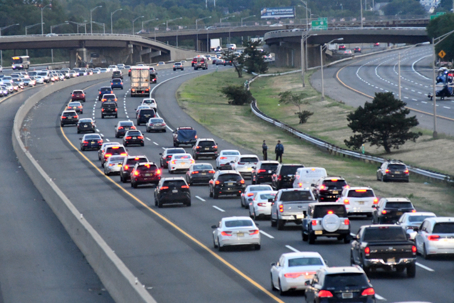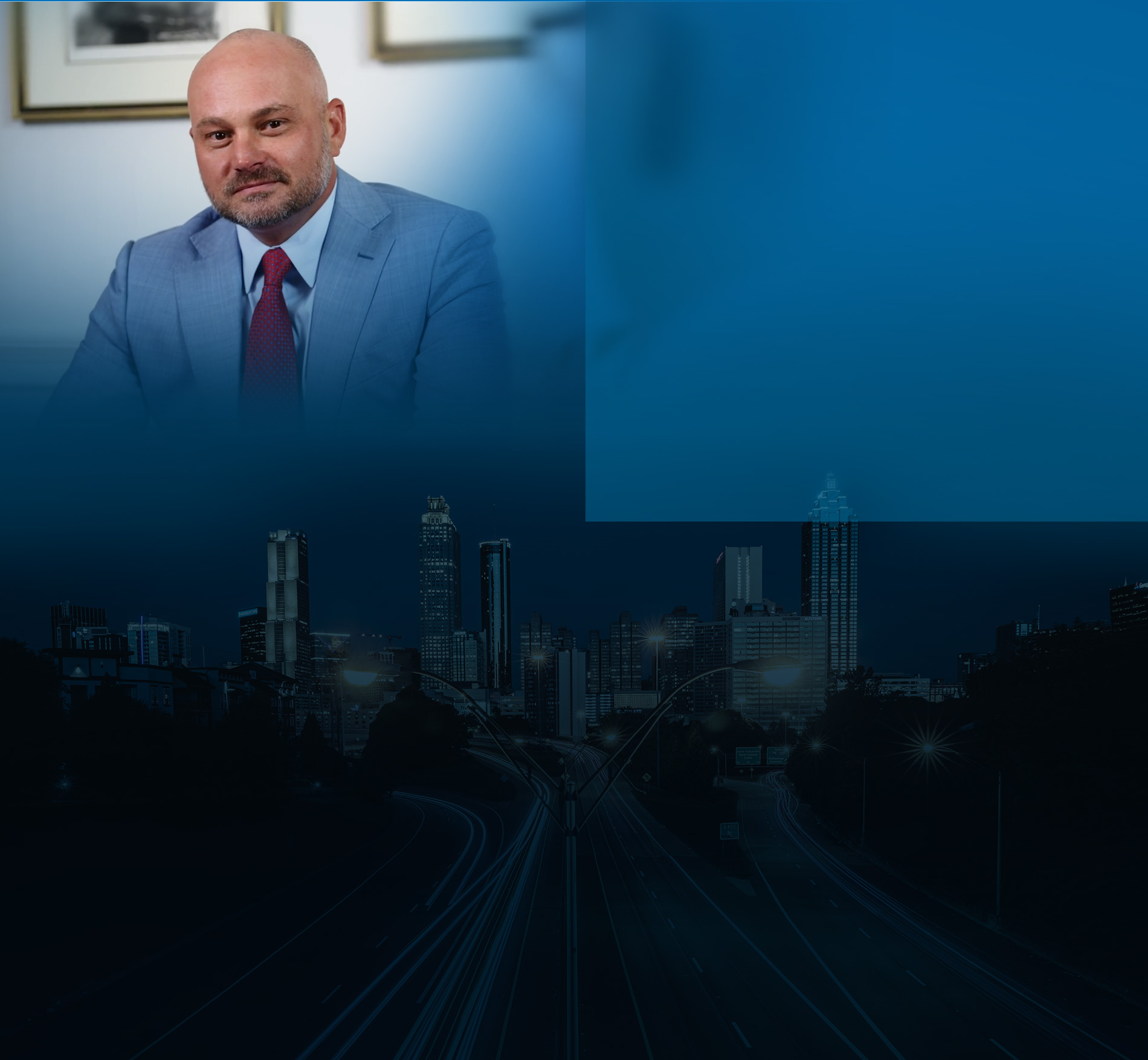The end of summer in Atlanta, GA, is a unique time. The city starts buzzing with back-to-school energy, Labor Day weekend plans, and last-minute summer adventures before the season officially winds down. But with all this activity comes an undeniable reality for drivers—Atlanta’s traffic becomes even more chaotic than usual. You know exactly what we mean if you’ve driven on I-285 or navigated through Midtown during this time.
End-of-summer traffic spikes not only test a driver’s patience but can also pose serious safety risks. Understanding what causes this uptick and knowing how to stay safe on the road can make all the difference. And, if you find yourself in an unfortunate situation, legal support is critical.
Why Traffic Spikes at the End of Summer
Atlanta drivers are no strangers to traffic. But as summer wraps up, congestion levels can reach a peak. Why does this happen? Several factors come into play:
1. Back-to-School Season
The start of a new school year brings thousands of parents, buses, and teen drivers back onto the roads. Morning and afternoon commutes get longer as school zones fill and bus routes create additional stops along popular streets.
Add to that the fact that new or inexperienced drivers are often behind the wheel during these times, and you’ve got a recipe for crowded, unpredictable road conditions.
2. Labor Day Travel
Labor Day weekend is a popular getaway opportunity for Atlanta residents eager to squeeze in one final vacation. Interstate routes like I-75, I-85, and I-20 see a significant increase in out-of-town travelers headed toward beach destinations or mountain retreats. Confusion and sudden lane changes become common with so many drivers unfamiliar with Atlanta’s roads.
3. Weather Changes
While summer rains are nothing new, late summer often brings sudden storms that can make roads slick and visibility poor. These conditions can easily lead to accidents, especially when combined with already heavy traffic or fatigued drivers returning from long trips.
4. Tourists Wrapping Up Trips
Atlanta attracts tourists year-round with destinations like the Georgia Aquarium, Piedmont Park, and Six Flags Over Georgia. Late summer draws in visitors rushing to enjoy the city before the cooler months arrive. Many of these tourists may not know the ins and outs of local traffic flow, creating more potential for accidents.
5. End-of-Year Construction Rush
Summer is prime time for road construction, and contractors often aim to finish projects by late summer to avoid winter delays. Lane closures, detours, and reduced speed limits from these projects can add to congestion and increase accident risks.
The Risks Posed by End-of-Summer Traffic
When traffic levels rise, so do the risks. The congestion during this period makes the roads more unpredictable and introduces new hazards:
- Rear-End Collisions: Increased traffic stops often catch distracted or tailgating drivers off guard, leading to rear-end crashes.
- T-Bone Accidents: Busy intersections become hot spots for side-impact collisions when drivers rushing to beat the light misjudge gaps.
- Pedestrian and Cyclist Accidents: With schoolchildren walking or biking and tourists exploring the city on foot, the likelihood of pedestrian-related accidents increases.
- Accidents Caused by Impatient Drivers: Frustration over traffic delays often leads to aggressive driving behaviors like weaving in and out of lanes, speeding, or running red lights.
Recognizing these risks is key to staying vigilant on the road.
Tips for Staying Safe During Atlanta’s End-of-Summer Traffic Spike
While the traffic spike can be daunting, there are practical strategies you can use to reduce your risk of an accident:
1. Plan Your Trips Wisely
Check traffic apps or websites like Georgia NaviGAtor before heading out to see which routes are busiest. Avoid peak traffic times (typically during weekday mornings and late afternoons) if possible.
2. Patience Wins on the Road
Getting frustrated when you’re stuck in bumper-to-bumper traffic is easy, but aggressive maneuvers won’t help you get there faster. Instead, stay calm, maintain a safe following distance, and focus on driving defensively.
3. Watch Out in School Zones
Observe reduced speed limits and always be on the lookout for children crossing streets, especially during school start and dismissal times.
4. Be Extra Cautious During Weather Changes
Carry an emergency kit in your car, and reduce your speed during storms or when roads are wet. Breaking early and avoiding sudden lane changes can also help prevent hydroplaning or collisions.
5. Prepare for Construction Zones
Look out for warning signs and lane closure notifications. Slow down when entering construction zones—even a moment of distraction can lead to an accident.
6. Don’t Drive Distracted
With traffic comes unpredictability, and being alert is your best defense against sudden stops or erratic drivers. Avoid texting, adjusting the GPS, or doing anything that takes your eyes off the road.
7. Prioritize Vehicle Maintenance
Before heading out for a long trip, check your tires (especially tread and pressure), brakes, and fluids. Summer heat can take a toll on your car, so ensuring everything is in order can help you avoid breakdowns in high-traffic areas.
8. Stay Hydrated and Rested
Fatigue and dehydration can impair one's ability to react quickly. Always take breaks on longer trips and avoid driving if one feels drowsy.
What to Do If You’re in an Accident
Even with the best intentions, accidents sometimes happen. If you’re involved in a collision during this high-traffic season, here’s what to do:
- Ensure Safety First: If possible, get yourself and your vehicle to a safe spot and check whether anyone is injured.
- Contact Emergency Services: Call 911 to report the accident and ensure medical help arrives quickly.
- Gather Evidence: Take pictures of the accident scene, collect witness information, and exchange insurance details with the other driver(s).
- Don’t Admit Fault: Stick to stating the facts and avoid making comments that could be interpreted as accepting blame.
- Seek Legal Help: Trucking companies, insurers, or even individual drivers may try to minimize their liability. Working with an experienced attorney ensures your rights are protected and you receive the compensation you’re entitled to.
Why Legal Support Matters After an Accident
Atlanta’s roads come with unique challenges, and traffic-related accidents can be complex. When you’re dealing with medical bills, vehicle repairs, and insurance headaches, having legal representation helps ease the burden. Attorneys understand local laws and can build a case to fight for fair compensation for injuries, damages, and emotional distress.
They’ll handle negotiations with insurance companies, investigate the accident, and, if necessary, represent you in court to hold the responsible party accountable.
Car Accident Lawyers in Atlanta
Through this exploration of Atlanta’s traffic patterns, safety concerns, and practical advice for all road users, the critical importance of safety on the road is evident. At Van Sant Law, we specialize in personal injury law, and we’re committed to empowering our community with the knowledge to avoid accidents. Located in the heart of Cumming, GA, our experienced team is ready to support those affected by road incidents. If you find yourself needing legal guidance, don't hesitate to contact us today at (800) 234-9556 for trusted local expertise and personalized care. Stay informed, stay safe, and prioritize responsible driving in the hectic traffic landscape of Atlanta.





